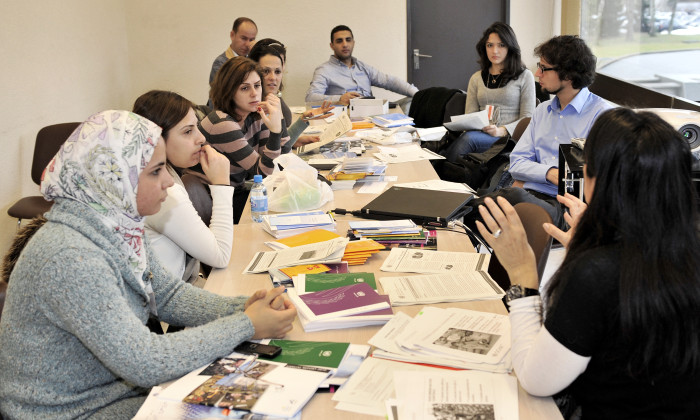Rule of Law (RoL)
Rule of law is essential to the sustainable stabilization of post-conflict countries. Activities in support of rule of law are therefore core tasks of multidimensional peace operations, addressing local institutions in the area of justice, police, corrections and the administration of justice.
Following a comprehensive analysis of the sector, necessary measures in the area of training, advice, drafting of laws, infrastructure or public information are identified. Typical programmatic activities carried out in virtually all missions of the UN, EU and the OSCE include the training of judges, prosecutors and attorneys, as well as of police and corrections officers. In Ukraine, the EU mission is developing the national capacity to investigate and prosecute international crimes, including war crimes, genocide or crimes against humanity.
Some missions also strengthen the educational systems for justice personnel or administration of justice (OSCE in Kyrgyzstan and Uzbekistan). Often, strengthening justice and corrections entails measures to improve the infrastructure, such as the reconstruction of courthouses, police stations, prisons or training centers in UN missions, e.g. in the Democratic Republic of the Congo (MONUSCO).
Activities in support of rule of law are core tasks of peace operations. Examples:
- MINUSCA (Central African Republic)
- EUPOL COPPS in the Palestinian Territories
- OSCE Mission to Serbia
 © Jean-Marc Ferre
© Jean-Marc Ferre
Peace operations also advise members of government, public servants and lawyers on constitutional issues and draft laws, with the aim of promoting the independence of the judiciary and compliance with international human rights and criminal justice standards, including gender-sensitive justice. The work of the UN missions in the Central African Republic (MINUSCA) and in Kosovo (UNMIK), the EU mission in the Palestinian Territories (EUPOL COPPS) and the OSCE presence in Uzbekistan are cases in point. Trial monitoring, such as that conducted by the OSCE presences in Bosnia and Herzegovina and Montenegro, can also foster compliance with human rights standards.
An important goal for rule of law activities is building popular trust in the justice system. The OSCE presences in Serbia and Montenegro both support national efforts to promote transparency and public accountability, and zero-tolerance policies on corruption in the police and justice sector. The UN mission in South Sudan (UNMISS) supports access to state and non-state justice mechanisms for populations in remote areas through mobile courts.
In rare cases, international personnel in missions with executive functions took on judiciary responsibilities, as was the case in the EU mission in Kosovo (EULEX Kosovo).
As of 06.01.2026